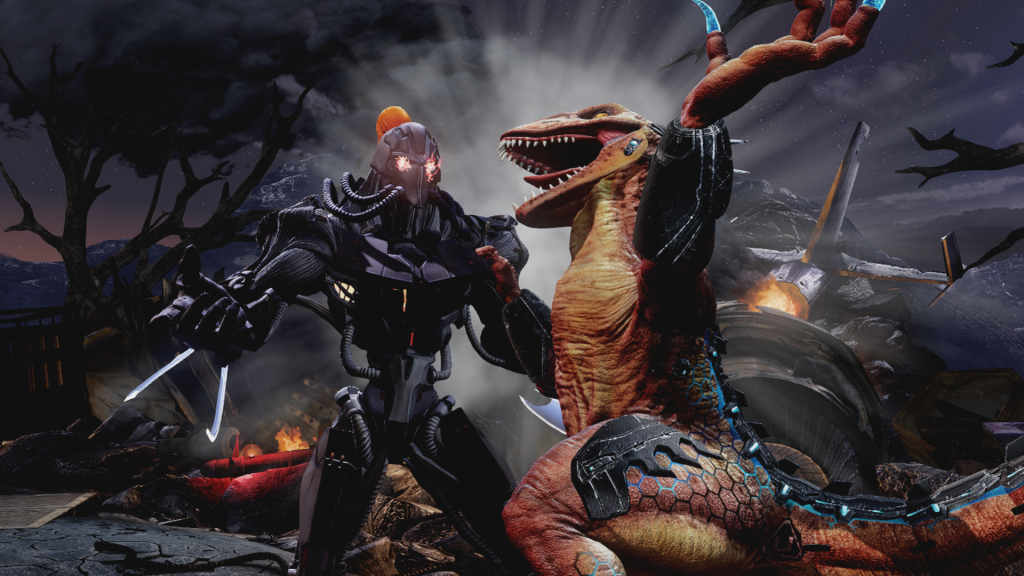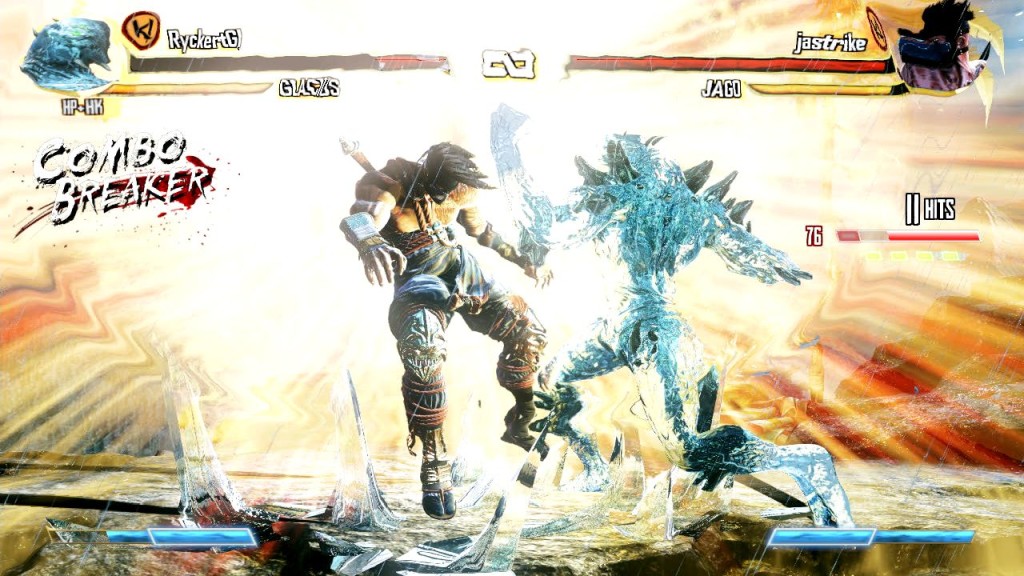After playing nearly one hundred ranked matches of Killer Instinct, I think I can speak with confidence that it’s one of my favorite fighting games ever. And, not surprisingly, I can discuss this in astonishing detail, because it took a lot of practice and time to even obtain a basic level of competency.
First, Killer Instinct requires you to pay attention at ALL times. This sounds like Fighting Game 101, but it really isn’t. See, most fighting games (like, say, Street Fighter) provide tiny moments of thought or momentary breathing room. When you’re in the neutral game, where footsies and basic back/forth zoning come into play, both opponents fish for an opening and and opportunity. The person who wins that exchange gains the reward of pressure or a punish, and most of the goal lies in punishing your opponent for mistakes they make under pressure.

Further, you can continually create situations where pressure exists even after massive damage, which might roll into further damage. In sum, fighting games almost require you to turn your opponent’s life into a living hell where they can’t do much of anything before your varied, successful onslaught. That sounds mean in text, but you must do this to ensure the win. Use your character’s unique strengths to generate advantage at the appropriate range, and force your opponent to make a wild guess, not an educated one.
To backtrack a little: in Street Fighter, a punish (i.e., combo, super, etc that hits for full damage) means that the person on the receiving end really can’t do much of anything until it ends, assuming that the person doing said punishing doesn’t drop it. In that time frame, which seems small, you’re free to think about what you’re going to do – will he knock me down? Do I wake up with some invincible counter move? Do I just block low? Or do I block an incoming overhead? That time dictates the flow of the match; the ability to detect patterns, process them, and think on your feet dictates a lot of Street Fighter’s pacing.
Killer Instinct, on the other hand, gives you almost no down time at all. If you get hit by a combo, you can break that combo at any time using Combo Breakers. Thus, you need to watch for appropriate audio/visual cues, locked patterns of muscle memory that the opponent uses over and over, as well as educated guesses as to the appropriate Breaker (light, medium, heavy) to use. Sometimes, you want to break a combo immediately; other times, you really need to wait in order to make a proper guess. Guess right, and you immediately bring the game back to neutral, which brings you back to fishing for a combo. Fail, however, and the Combo Breaker system “locks out”, meaning your opponent can do anything they want in the current combo without fear of reprisal for about 3 seconds.

Succinctly speaking, Killer Instinct can exhaust your mental capacity if you’re not used to it. But, on the other hand, being given the opportunity to break a combo means reading your opponent’s habits becomes incredibly important, more so than many fighting games. You can score even greater via successful reads in the Counter Breaker system. If you can predict a Combo Break based on an opponent’s Combo Breaking habits, then you can Counter their Breaker, obtaining 4 seconds of uninterrupted combo time – the reward for such an educated guess is appropriate high, with some characters able to destroy an entire life bar with that one opening. In other words, Killer Instinct rewards players who master the very basics of fighting games (be better than your opponent), and that’s pretty great!
Killer Instinct gets more rewarding the more time you put into it. The defensive mind-games of Combo Breakers become a sort of mini-game in themselves, and a keen understanding of each character’s attacks and your opponent’s typical attack strings will turn you into a dominating presence. Execution seems less important here (although, linking light Auto-Doubles into special moves is pretty hard with such a short buffer window – just my experience!) than varying your combo strings. Manuals add just another layer to the combo game, as you can link attacks that shouldn’t really go after each other, thus throwing off your opponent’s Combo Breaker timing (or preventing any at all).

I suppose that spending time makes all fighting games more rewarding, but I really caught the bug with this one. I returned to other fighting games, and found that I improve massively just via Killer Instinct’s laser-focus on fundamentals and semi-speedy execution. Heck, Guilty Gear felt slow, and I think it’s partly due to the amount of mental concentration needed to play well. You can never “auto-pilot”, and I think that’s a really interesting way to approach a fighting game. Killer Instinct rewards studying and learning so much that the game remains compelling even when I lose, precisely because I understand what tactics to counter and practice in training mode for future use.
The learning process really excites me, because it’s much the same process that engendered so much academic study on my part. Each game is like a test, both of learning the character and the person playing that character. Sometimes I fail, and sometimes I win, but I’m always learning something from the process. I suppose that’s why it isn’t surprising that Christianity also has its own focus of study and meditation on the things of God. If you put good in, you do eventually get good out, but even then life is a constant test of improvement over varied trials. We understand what we learn when forced to use it in the moment, and fighting games can turn into an odd metaphor for life by that notion! Joshua 1:8 might feel overused, but it feels particularly relevant in this case:
8 This book of the law shall not depart from your mouth, but you shall meditate on it day and night, so that you may be careful to do according to all that is written in it; for then you will make your way prosperous, and then you will have success.
Training, education, and meditation, simply put, are necessary to really push ourselves towards the goal of prosperity (I don’t mean money) and success (I still don’t mean money). To become more like Jesus Christ takes time and effort, and often requires doing things we don’t like doing (example: tithing), but that doesn’t make them any less necessary or satisfying.
If you hadn’t guessed already, you really should be playing Killer Instinct!
